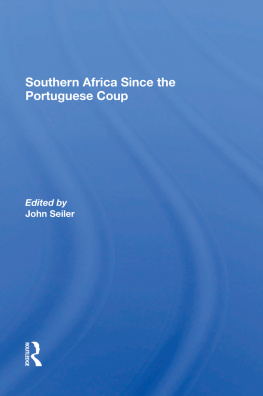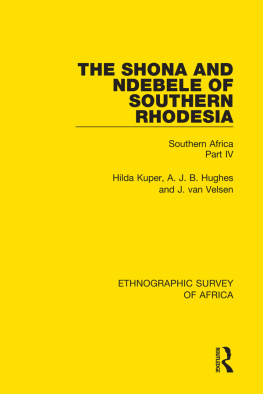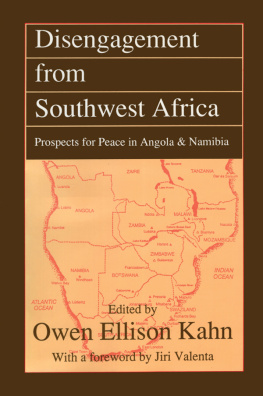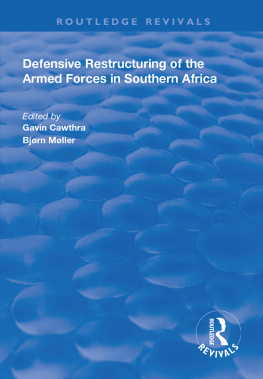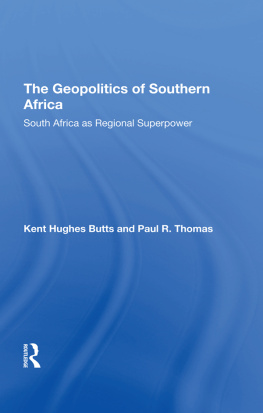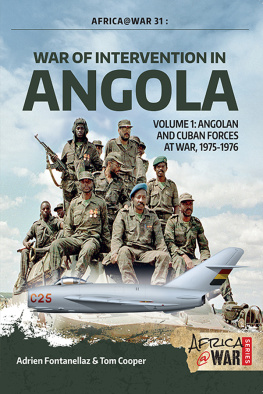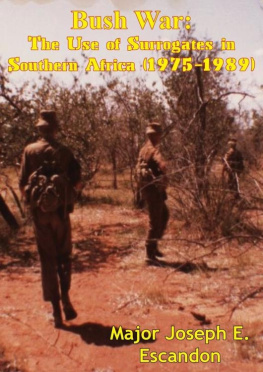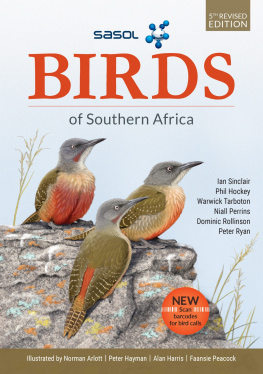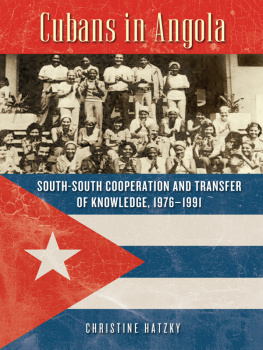Southern Africa Since the Portuguese Coup
Other Titles in This Series
Ethnicity in Modern Africa , edited by Brian M. du Toit
Botswana: An African Growth Economy, Penelope Hartland-Thunberg
Zambia's Foreign Policy: Studies in Diplomacy and Dependence , Douglas G. Anglin and Timothy Shaw
South Africa into the 1980s, edited by Richard E. Bissell and Chester A. Crocker
The Arab-African Connection: Political and Economic Realities , Victor T. Le Vine and Timothy W. Luke
An African Experiment in Nation Building: The Bilingual Cameroon Republic Since Reunification , edited by Ndiva Kofele-Kale
African Upheavals Since Independence , Grace Stuart Ibingira
Regionalism Reconsidered: The Economic Commission for Africa, Isebill V. Gruhn
Bibliography on African International Relations , Mark W. DcLancey
Africa and the West, edited by Michael A. Samuels
Alternative Futures for Africa, edited by Timothy M. Shaw
Westview Special Studies on Africa
Southern Africa Since the Portuguese Coup
edited by John Seiler
The April 1974 coup in Portugal markedly shifted political relationships in Southern Africa, forcing, among other outcomes, a clearer emergence of intractable differences within the region. The contributors to this volume present a careful exposition of events since the coup and an analysis of their implications. Reflecting divergent values and coming to differing conclusions, they confirm that no easy solutions to the regional conflict are at hand and that Southern Africa will for some time remain a focus for international attention.
John Seiler was formerly an associate research fellow at the Center for Strategic and International Studies, Georgetown University.
Southern Africa Since the Portuguese Coup
edited by John Seiler
First published 1980 by Westview Press
Published 2019 by Routledge
52 Vanderbilt Avenue, New York, NY 10017
2 Park Square, Milton Park, Abingdon, Oxon OX14 4RN
Routledge is an imprint of the Taylor & Francis Group, an informa business
Copyright 1980 by Taylor & Francis
All rights reserved. No part of this book may be reprinted or reproduced or utilised in any form or by any electronic, mechanical, or other means, now known or hereafter invented, including photocopying and recording, or in any information storage or retrieval system, without permission in writing from the publishers.
Notice:
Product or corporate names may be trademarks or registered trademarks, and are used only for identification and explanation without intent to infringe.
Library of Congress Cataloging in Publication Data
Main entry under title:
Southern Africa since the Portuguese coup.
(Westview special studies on Africa)
Includes index.
1. Africa, SouthernPolitics and governmentAddresses, essays, lectures. 2. National
liberation movementsAfrica, SouthernAddresses, essays, lectures. 3. PortugalHistory
Revolution, 1974InfluenceAddresses, essays, lectures. 4. Africa, SouthernRelations
(general) with foreign countriesAddresses, essays, lectures. I. Seiler, John.
DT746.S62 968.06'2 80-11996
ISBN 13: 978-0-367-28808-2 (hbk)
For Miriam
Contents
- PART 1
THE TRIGGERING EVENT - PART 2
THE INTERNATIONALIZATION OF REGIONAL CONFLICT: ANGOLA AND ITS AFTERMATH - PART 3
TERRITORIES IN TRANSITION? ZIMBABWE RHODESIA AND SOUTH WEST AFRICA/NAMIBIA - PART 4
SOUTH AFRICA IN THE REGION - PART 5
THE WIDENING CONFLICT WITHIN SOUTH AFRICA - PART 6
BLACK AFRICAN GOVERNMENTS IN REGIONAL POLITICS
- PART 1
THE TRIGGERING EVENT - PART 2
THE INTERNATIONALIZATION OF REGIONAL CONFLICT: ANGOLA AND ITS AFTERMATH - PART 3
TERRITORIES IN TRANSITION? ZIMBABWE RHODESIA AND SOUTH WEST AFRICA/NAMIBIA - PART 4
SOUTH AFRICA IN THE REGION - PART 5
THE WIDENING CONFLICT WITHIN SOUTH AFRICA - PART 6
BLACK AFRICAN GOVERNMENTS IN REGIONAL POLITICS
Guide
Donald G. Baker , professor of political science, Southampton College, Long Island University
David F, Gordon , assistant professor of government, The College of William and Mary
Maurice Halperin , professor emeritus of political science, Simon Fraser University
Noel C. Manganyi , professor of psychology and dean of the faculty of arts, University of Transkei
Ali A. Mazrui , professor of political science, University of Michigan
Keith Middlemas , reader in modern history. University of Sussex
John Seiler , associate research fellow, Center for Strategic and International Studies, Georgetown University (1978-1979)
Mary Simons , lecturer in African government, University of Cape Town
Roger J. South all , senior lecturer in government and administration, National University of Lesotho
Christopher Stevens , research officer, Overseas Development Institute
Gerhard Totemeyer , professor of political science, University of Transkei
C. Munhamu Botsio Utete , associate professor of political science, Montclair State College
Douglas L. Wheeler , professor of history, University of New HampshireDurham
Crawford Young , professor of political science, University of WisconsinMadison
Toward the end of 1975 I decided to edit a collection of essays on political developments in Southern Africa. At that time, I was teaching political science at Rhodes University in South Africa. Regional events since the Portuguese coup in April 1974 had already made an enormous impact, first suggesting the possibilities of peaceful accommodation between South Africa and its neighbors, but then demonstrating the destructive impact in Angola of widespread international intervention (in the latter half of 1975). From 1975 to the present, events in Southern Africa have neared center stage in international attention, but, as these essays will show, outstanding regional differences are no closer to peaceful resolution in late 1979 than they were in early 1976.
In my invitations to contributors, I consciously looked for a variety of viewpoints but asked that in expressing their viewpoints they avoid jargon and polemic. Despite my deep respect for and dependence on a number of journalists writing about Southern African affairs, all the contributors were drawn from the academic field because I wanted detailed descriptions of recent events to be related to long-term patterns.
Three acknowledgments are in order. First, to the contributors themselves for their patient acceptance of my editorial preferences. Second, to the Group Chairman's Fund of the Anglo American Corporation for a grant that enabled me to hold a workshop on the subject of this book at Rhodes University on 24-25 June 1976. Preliminary versions of a few essays were given; and black and white discussants from South Africa and North America took part in a general discussion of some of the central themes of this volume. This informal meeting would have been unusual in South Africa at any time, but its setting just after the beginning of the Soweto student riots gave it special poignancy.
Finally, my thanks go to my wife, with whom I shared many South African experiences from 1972 to 1977.

